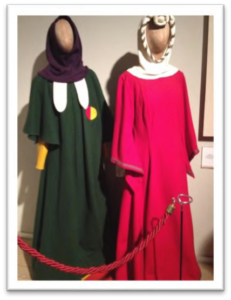Since the second century A.D. until the year 1492
 In the western lands of the Mediterranean, what will later be Catalonia, there is a documented presence of Israeli communities since the second century. Documentary evidence is the trilingual inscriptions written in Hebrew, Latin and Greek, found in Tarraco (Tarragona), imperial capital of the Roman province and in Dertosa (Tortosa), an important city on the banks of the Ebro. So are the inscriptions with Hebrew characters in an amphora discovered in Ibiza.
In the western lands of the Mediterranean, what will later be Catalonia, there is a documented presence of Israeli communities since the second century. Documentary evidence is the trilingual inscriptions written in Hebrew, Latin and Greek, found in Tarraco (Tarragona), imperial capital of the Roman province and in Dertosa (Tortosa), an important city on the banks of the Ebro. So are the inscriptions with Hebrew characters in an amphora discovered in Ibiza.
In the Catalan lands, for more than 1,000 years the Jews had been part of the social and cultural landscape. And they had been the vanguard of scientific and academic knowledge and artistic production. In the Middle Ages, the Jews had lived very harmoniously with the population of Muslim and Christian religion. Because of their culture, knowledge and crafts, the Jews were very well regarded.
When the Catalan counts together with Abbot Oliba, in 1027, established the Peace and Truce of God in Toluges (present-day France), in the first parliamentary and legislative assembly of the Christian world, they were already called Jewish jurists to write the entire legal corpus. The list of Jews who in Catalonia have stood out in medicine, philosophy, poetry, laws, etc., is very long. Their capacity for finance and for commerce led them to be highly respected by the nobility and the kings, who also used them as bankers to finance their projects.

Typical clothing of the Jewish population in the Middle Ages
In times of crisis, such as during the burning of Jewish quarters in 1391, it was the intervention of King Joan I that stopped the looting and massacres carried out by a maddening people, duly manipulated by foreign Christian monks who sought to destabilize the monarchy. In Mallorca, the flight of many Jews affected the economy of the island but forced converts resumed businesses with new Christian names. At the end of the fifteenth century, converts have a monopoly on soap, silk and velvet, silverware (16 silversmiths) and clothing (112 workshops).
In 1492, Fernando de Aragón and Isabel de Castilla signed in Granada the decree of conversion or expulsion of all persons of Jewish religion who lived in their domains. And an end to a coexistence and, also, to a century of very hard persecutions initiated with the pogroms of the year 1391 that had led to mass murders and forced conversions.
In Catalonia, the year 1492, the Jews had been reduced to a small community of 8,000 people that contrasted with the 50,000 before the pogroms of 1391 (15% of the Principality population). The decree had little impact on Catalonia. Most of the Catalan Jews who had survived the pogroms, had already begun the path of exile or had converted to Christianity. The social and economic position was decisive. And unlike what had happened a century before, the richest converted and acceded to positions that until then, because of their condition, they had private. Some, even, would be integrated into the chancery of Fernando the Catholic.
Routes of exile: pogroms year 1391 and decree of expulsion year 1492.

